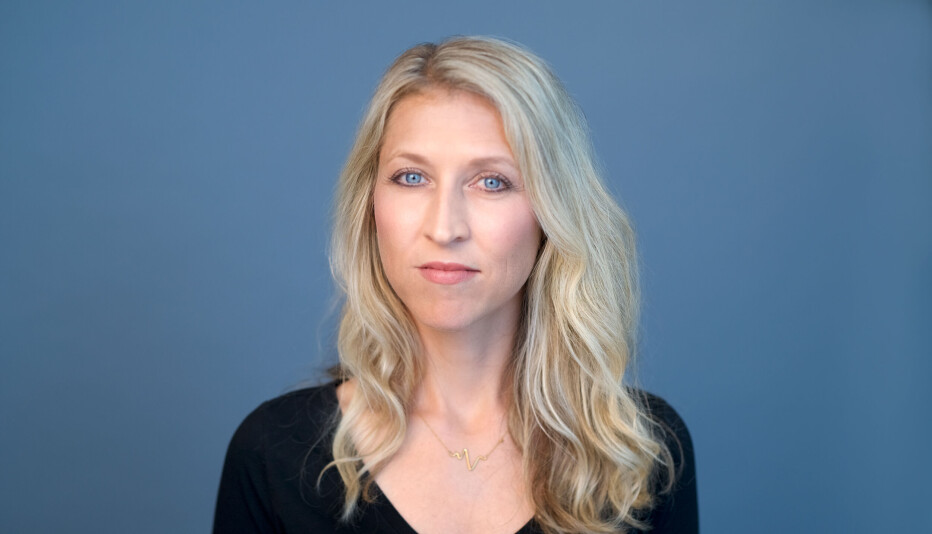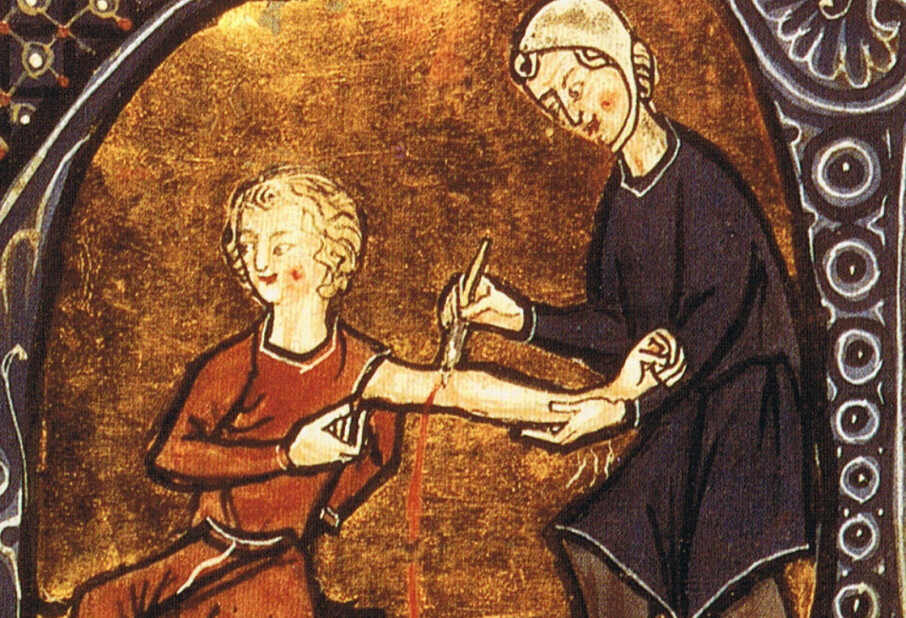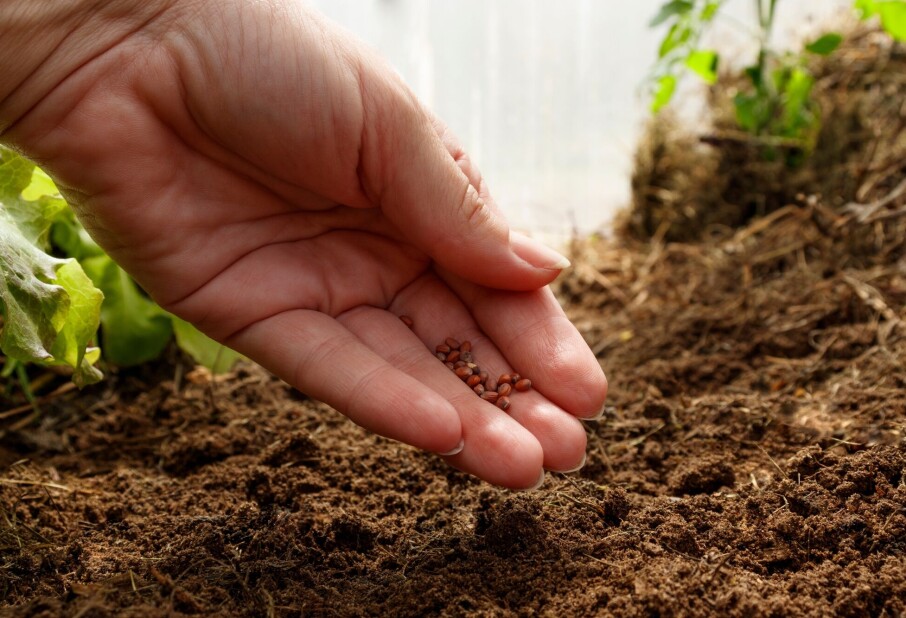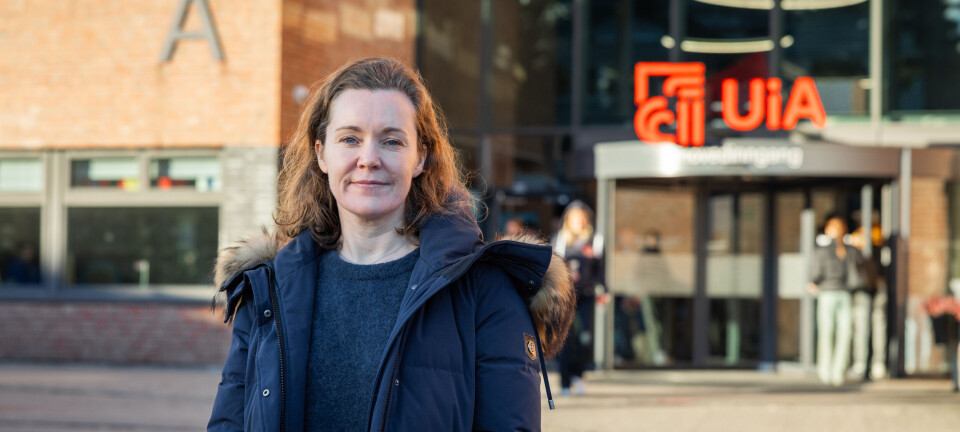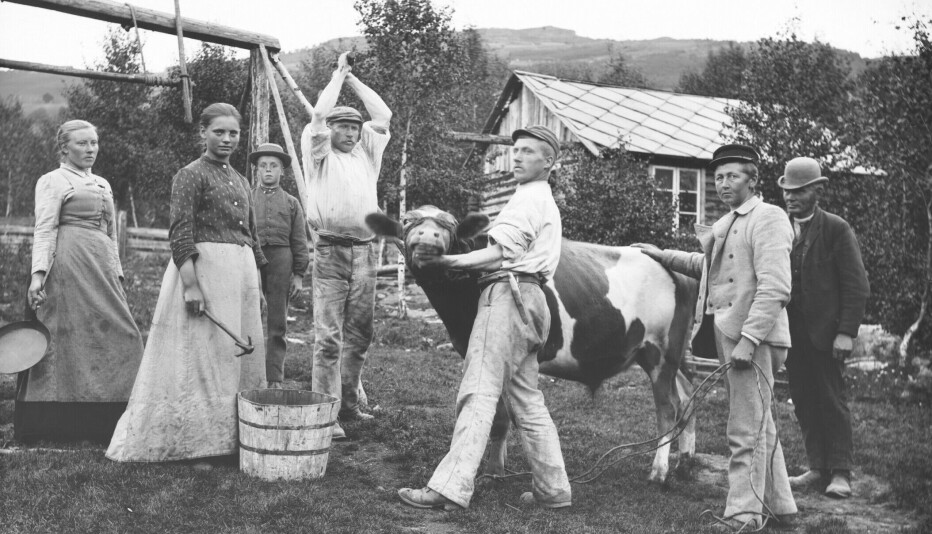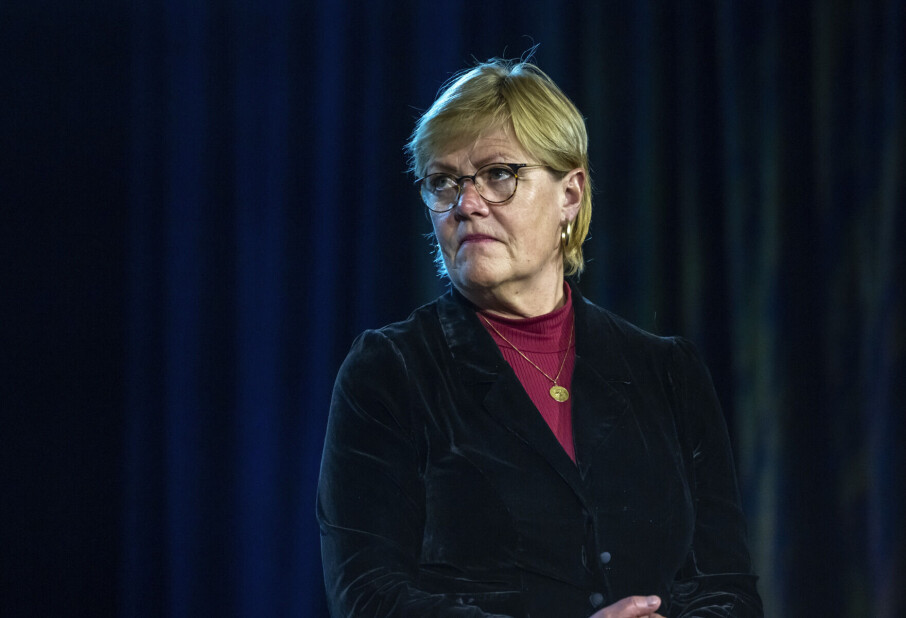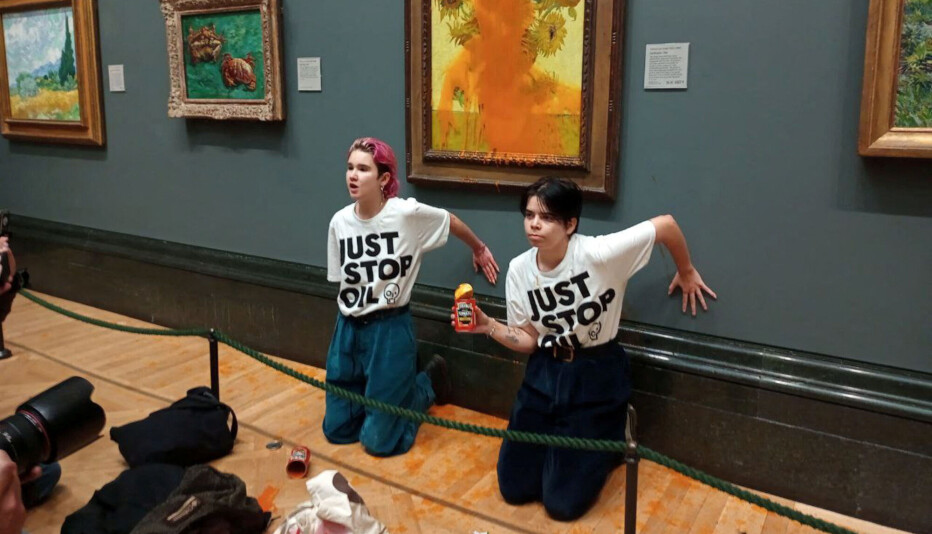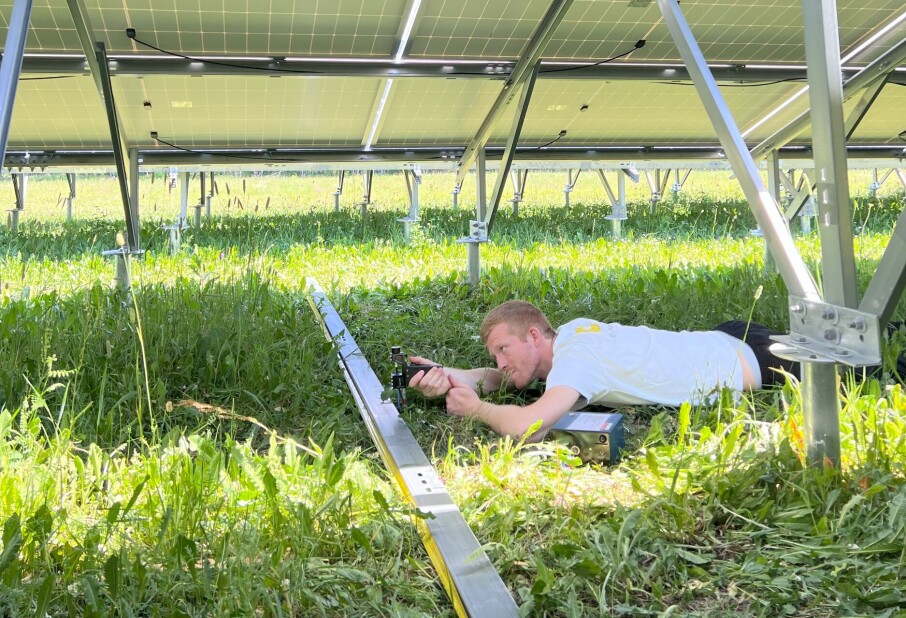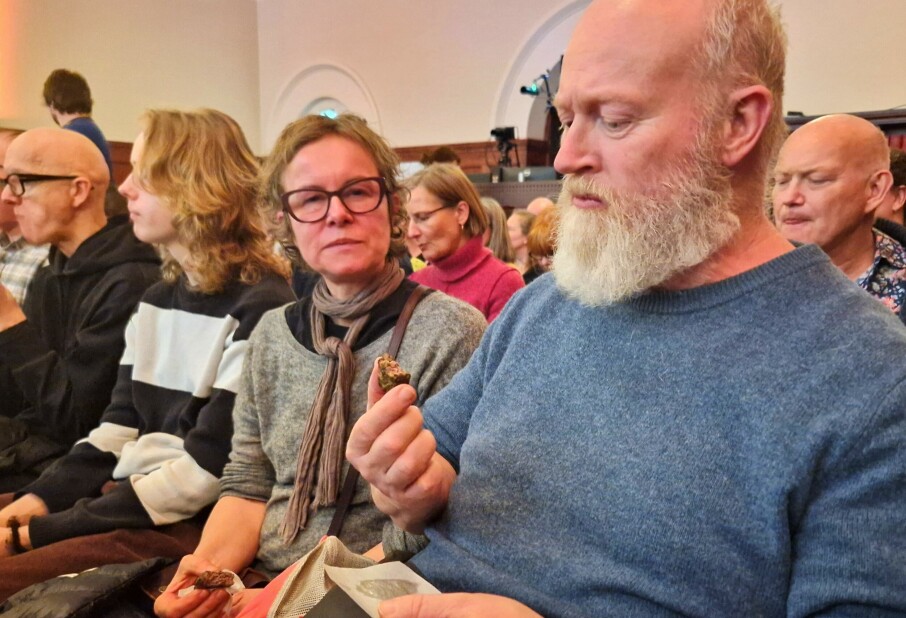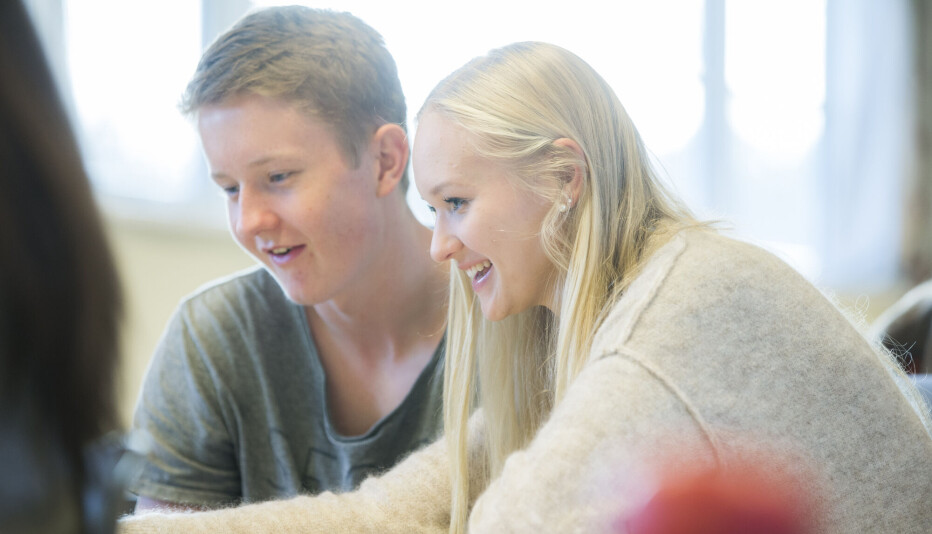
It is completely normal to struggle with parenting, researcher says
Parents who struggle with raising their children receive little understanding , says education Professor Stein Erik Ulvund.
Many people struggle with raising children.
However, it is often seen as not acceptable to be a parent who struggles with parenting.
Parents are simply expected to manage.
Parents with a lot of guilt
As soon as something goes wrong in the relationship between parents and children, the parents often get the blame.
Stein Erik Ulvund, a professor at the University of Oslo, believes that professionals also tend to blame the parents.

He is clear that parenting is not always easy and that parents often do their best without feeling that it helps.
“We have to understand that this is complicated,” he says.
“There are so many different factors that can make parenting difficult. The parents' upbringing is just one of the factors.”
Ulvund emphasises that some children have a very challenging temperament. In everyday language, most people associate temperament with being irritable and having a ‘short fuse’, but it also has to do with how social you are, whether you are shy, and other personality traits.
“It’s not the children's fault. But it's not the parents' fault either. Parents need help and understanding to handle these children. It’s unfortunate that they are often made to feel guilty,” Ulvund tells sciencenorway.no.
Too much coddling and fussing
Children have been poorly treated throughout history.
100 years ago, many adults believed that discipline and good values could be instilled in children through corporal punishment.
Over time, society’s view of children has changed dramatically. Today, Norwegian society sees children as very valuable. They are treated with a lot of respect.
Some believe that the pendulum has swung too far. That we have reached the point where we too often understand our children to death. That we coddle and fuss over them too much.
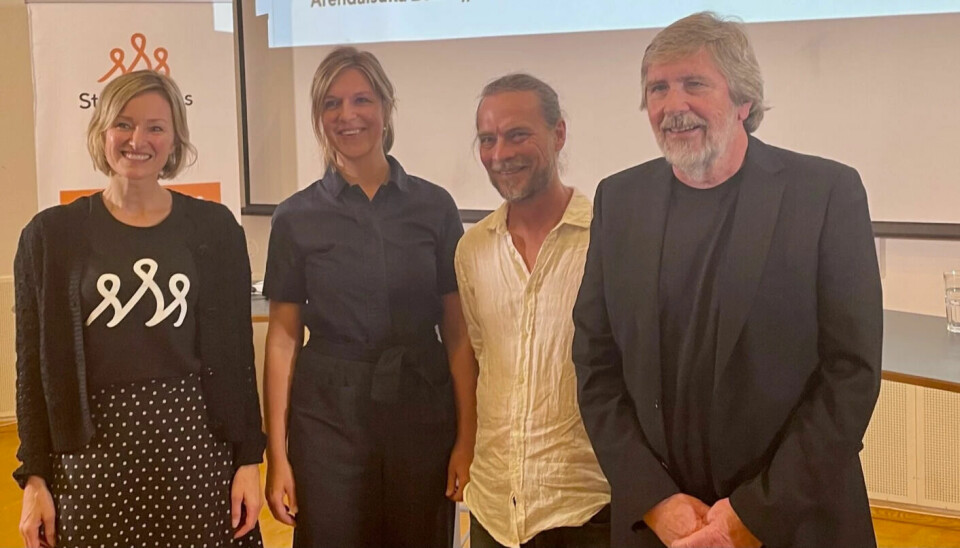
However, violence still occurs against children and young people in Norwegian homes.
The topic was discussed during this year's Arendalsuka, an annual political festival in Norway, when the Stine Sofie Foundation organised a meeting on parenting and violence in adolescence.
“You're going to make a lot of mistakes”
Stein Erik Ulvund also participated in the debate during Arendalsuka. There he clearly established that all forms of psychological and physical violence are very harmful.
In an interview with sciencenorway.no after the meeting, he elaborates:
“There are many examples of parents exhibiting completely unacceptable behaviour that affects their children's mental health. With a few exceptions, it’s mainly repeated incidents that are a major problem,” Ulvund says.
But this does not apply to the vast majority of parents, he reminds us.
“As a parent, you're certainly going to make a lot of mistakes in parenting.”
“As long as you’re not consistently making mistakes, things will most likely turn out okay. There are many paths that lead to normal development.”
There is no definitive answer for child-rearing/parenting
Ulvund has studied parenting as a field for 40 years.
He says he has become more and more doubtful about what the right way to raise children is.
There is no definitive answer, he writes in the book Rakkerunger og englebarn (Rascals and Angels) published in 2014.
“Parenting varies greatly, depending on whether you get an ‘angel child’ or a ‘rascal’. And that is very much a matter of chance,” he tells sciencenorway.no.
Most viewed
No content
The professor’s key argument is that the child you have influences how you act and behave towards that child.
“If you have more children, you will never be able to raise them exactly the same.”
“If you have a child who is very challenging and demanding, you may need to be much stricter than you would like to be. But if you have a child with whom there are no problems, you can be more lenient.”
Parents usually do this completely intuitively, Ulvund believes. They manage this without advice or help from professionals.
Advice varies in all directions
Nonetheless, many parents are uncertain about what constitutes good parenting.
What they should actually do.
“It's not surprising. The advice they receive varies in all directions.”
“Both professionals and various well-known people offer advice that is more likely to confuse than to enlighten people. Advice that is not scientifically grounded.”
If Stein Erik Ulvund himself were to give parents advice, it would be that they should not listen to advice that they feel is wrong for them.
“In the jungle of advice, you can get far with these three tips,” he says.
- Give your child unconditional love
- Set clear boundaries
- Accept the child you have, for better or worse
If things get difficult, it may be wise to seek help from professional services, the professor advises. But then you are dependent on finding someone who understands the challenges of raising children.
Some in the support system have relatively little experience with children and may have a rather narrow view of child-rearing, Ulvund believes.
Contact with professional services often ends up with the challenging child receiving an ADHD diagnosis. Far too many children get it, Ulvund thinks.
“Some parents would like a diagnosis. Then they feel that it’s not their fault when things go wrong. This also triggers resources and assistance from support services.”
Has 1 in 4 been subjected to abuse?
According to a report from the Norwegian Centre for Violence and Traumatic Stress Studies (NKVTS) that came out in 2022, 1 in 4 Norwegian lower secondary students say they have been subjected to violence and abuse. The figures were widely discussed in the media, and forskning.no wrote about the matter (link in Norwegian).
“Everyone knows that parents, when they get angry, can say things that frighten or hurt their child. This can become what we call psychological violence if it happens repeatedly,” Gertrud Sofie Hafstad said in Arendal. She led the research project behind the NKVTS report.
Hafstad clarified that psychological violence is something entirely different from setting boundaries and strict upbringing.
“It concerns recurring instances of verbal remarks that frighten, threaten, humiliate, and hurt children.”
Taboo to talk about challenging children
Psychologist Peder Kjøs also participated in this event during Arendalsuka.
“Everyone knows that they shouldn’t react with anger towards children. However, it’s difficult to avoid doing so,” he said.
Kjøs believes that there are taboos against talking about the fact that some children are more challenging than others.
“They have a harder time thriving. They have difficulty interacting well with others. It’s also about them being more vulnerable.”
Kjøs points out that it is not easy to talk about these things without assigning blame.
“Many psychologists in my generation are of the opinion that most things are related to environmental factors,” he said.
If you are looking for explanations for young people’s mental health, you have to look at their environment. This often leads you back to the parents' home.
The difficult self-awareness
In Arendal, Kjøs pointed out that we have become more aware in recent years that children inherit genes that shape their personalities.
He believes that one of the reasons we are triggered by our children is that they have inherited many of our genes. They have a similar nervous system to ours.
This is challenging, Kjøs believes. Because it means you have to be willing to look inside yourself and acknowledge what you see. And perhaps you will then be reminded that you too may have inherited your anger from your parents.
This self-awareness is difficult to face, according to Kjøs.
His recommendation is that if you know you have a tendency towards violence, you must be even more careful with your reactions than other people.
“We know that violence passes through generations.”
Psychologist Peder Kjøs’ advice is to give challenging children even more love.
“You’ll need to adapt your parenting approach differently than you would if you had easygoing and compliant child.”
Genes and environment interact
Stein Erik Ulvund sees both a benefit and a drawback to the concept of ‘confronting oneself’.
If you have been a shy child and teenager and then have a shy child yourself, you know what this feels like.
You will understand this child much better than parents who are social and outgoing. The downside is that you can easily become extra worried based on what you yourself have experienced.
“If you see that the child has inherited your irritability, it can be a minefield. But if you’re aware of it and reflect on it, it will help you avoid a number of problems,” he believes.
If you have a challenging child and you yourself are irritable, it is wise not to have too many rules. This can help avoid excessive conflicts.
“Have some important rules. When things are going well, you can introduce more.”
“Focus on what is going well and what works. Praise the child when things are going well. But don't excessively praise the child to the point where they think they are the best in the world. That can backfire.”
Parents can get very far by using their ears, the educator believes.
“Communication often becomes difficult because teenagers feel they aren’t heard and taken seriously.”
Social media paints a false picture
Ulvund thinks more parents should relax. They should not be so afraid of making mistakes in child-rearing.
“The truth is that all parents make mistakes.”
“Children don’t need super parents. They need regular, competent parents who show that they love them and care about them,” he tells sciencenorway.no.
Ulvund believes that social media has made it much more difficult to be a parent today than it was before.
“I’m on both Facebook and Instagram and see what’s going on there.”
“After the summer holidays, social media becomes a showcase for success. We don't get to hear about all the arguments that have happened in cabins, in caravans, and on mountain hikes.”
“Many parents end up feeling like losers because they haven’t achieved what they think others have. They believe that it’s only in their home that things are heated.”
You can get a completely wrong impression of what constitutes a normal family life if you allow yourself to be influenced by these platforms, Ulvund warns.
———
Translated by Alette Bjordal Gjellesvik.
Read the Norwegian version of this article on forskning.no













